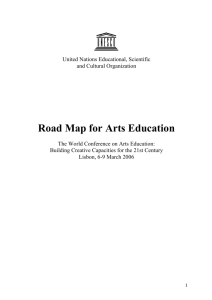Art in Truth in God
advertisement
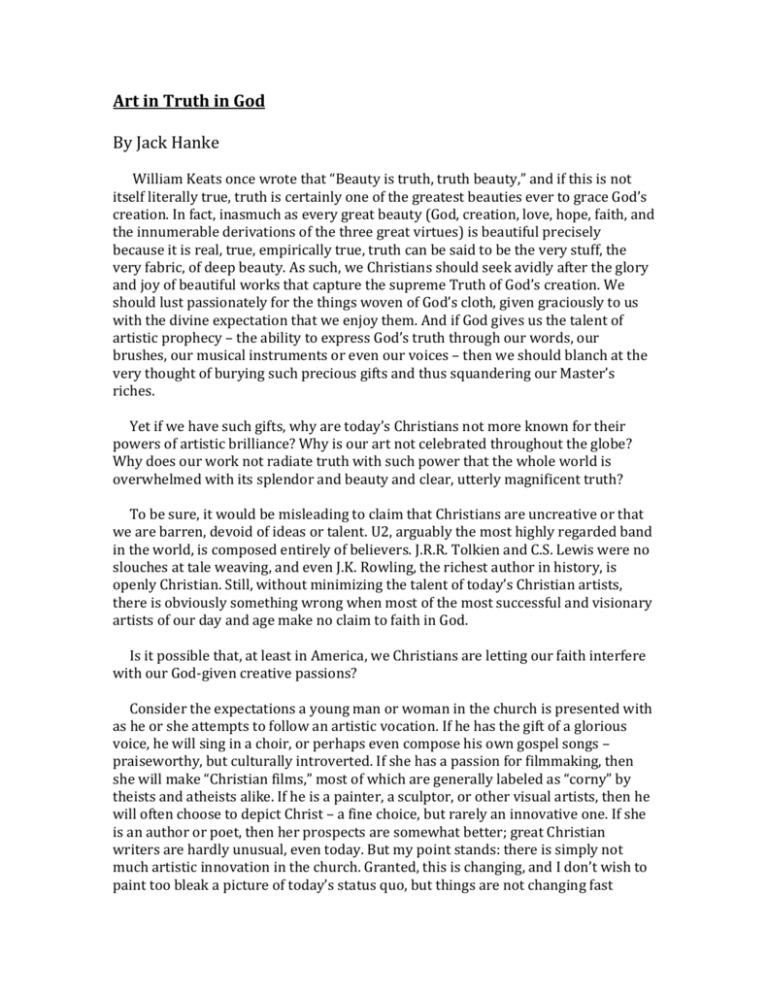
Art in Truth in God By Jack Hanke William Keats once wrote that “Beauty is truth, truth beauty,” and if this is not itself literally true, truth is certainly one of the greatest beauties ever to grace God’s creation. In fact, inasmuch as every great beauty (God, creation, love, hope, faith, and the innumerable derivations of the three great virtues) is beautiful precisely because it is real, true, empirically true, truth can be said to be the very stuff, the very fabric, of deep beauty. As such, we Christians should seek avidly after the glory and joy of beautiful works that capture the supreme Truth of God’s creation. We should lust passionately for the things woven of God’s cloth, given graciously to us with the divine expectation that we enjoy them. And if God gives us the talent of artistic prophecy – the ability to express God’s truth through our words, our brushes, our musical instruments or even our voices – then we should blanch at the very thought of burying such precious gifts and thus squandering our Master’s riches. Yet if we have such gifts, why are today’s Christians not more known for their powers of artistic brilliance? Why is our art not celebrated throughout the globe? Why does our work not radiate truth with such power that the whole world is overwhelmed with its splendor and beauty and clear, utterly magnificent truth? To be sure, it would be misleading to claim that Christians are uncreative or that we are barren, devoid of ideas or talent. U2, arguably the most highly regarded band in the world, is composed entirely of believers. J.R.R. Tolkien and C.S. Lewis were no slouches at tale weaving, and even J.K. Rowling, the richest author in history, is openly Christian. Still, without minimizing the talent of today’s Christian artists, there is obviously something wrong when most of the most successful and visionary artists of our day and age make no claim to faith in God. Is it possible that, at least in America, we Christians are letting our faith interfere with our God-given creative passions? Consider the expectations a young man or woman in the church is presented with as he or she attempts to follow an artistic vocation. If he has the gift of a glorious voice, he will sing in a choir, or perhaps even compose his own gospel songs – praiseworthy, but culturally introverted. If she has a passion for filmmaking, then she will make “Christian films,” most of which are generally labeled as “corny” by theists and atheists alike. If he is a painter, a sculptor, or other visual artists, then he will often choose to depict Christ – a fine choice, but rarely an innovative one. If she is an author or poet, then her prospects are somewhat better; great Christian writers are hardly unusual, even today. But my point stands: there is simply not much artistic innovation in the church. Granted, this is changing, and I don’t wish to paint too bleak a picture of today’s status quo, but things are not changing fast enough. When is the last time you heard testimony from a new believer who came to Christ because of the power of godly art? Too long ago, if ever, I suspect. Yet truth is tenacious and the bearer of infinite facets. It has plenty of untouched surfaces left to reflect light, and it does not mind being used roughly. If Christian artists are truly interested in following an unfettered path of exploration and charting their journey in story, song or cinema, then they need not put a gratuitous “Jesus Story” in their art, nor do they need to lather their work with translucent allegories. Truth can speak for itself. Perhaps we need to reevaluate the breadth of our minds, the breadth of what we see as true and valuable and God-given. The human writers of the Bible used all the artistic innovation they could muster, employing techniques from alphabetic acrostics to countless puns, to convey truth, because they believed that anything worth saying was worth saying beautifully. With the stratospheric range of artistry that stretches out before us, then, why are we not doing likewise? It is not enough to numbly copy out or mirror God’s eternal truth; we must extend His creation into a dazzling mosaic that reflects as full an extent of His truth and nature as possible. God gave us free will not merely so that we could choose to follow Him. He gave it to us so that we could explore His grace like a museum, like an art gallery the size of the Milky Way, and so that we could share that experience in the unique way He has enabled us all to develop. It’s time for us to dig up our talents.
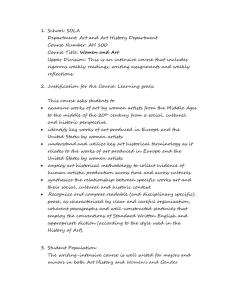
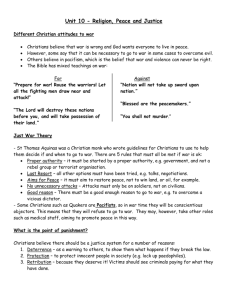
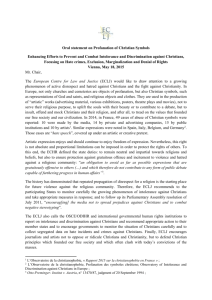
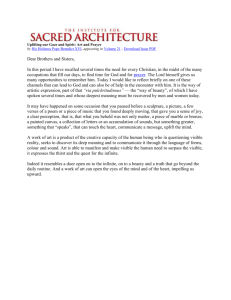

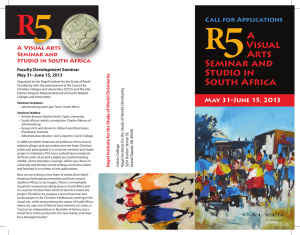

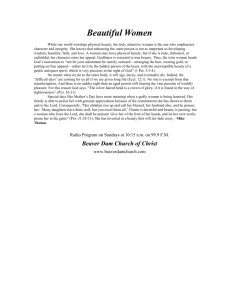
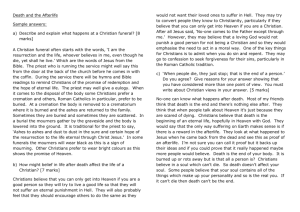
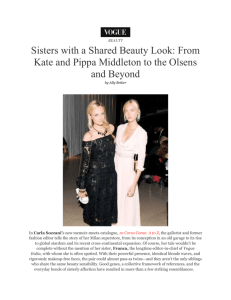
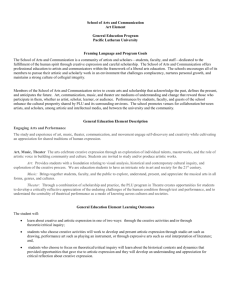

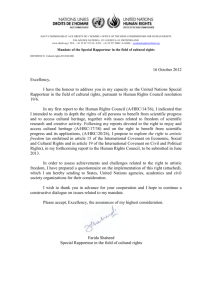
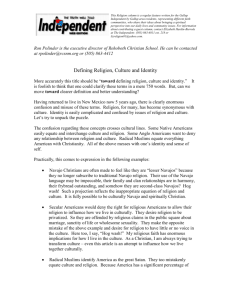
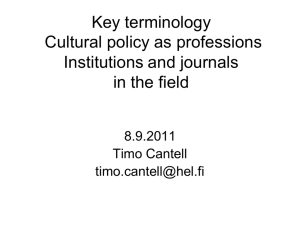
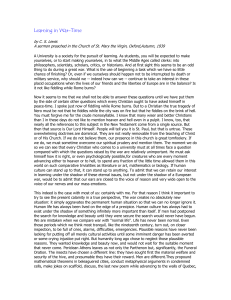
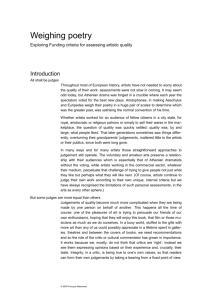
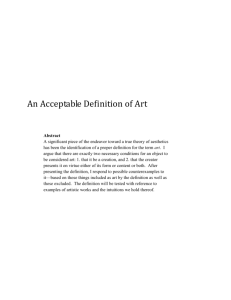
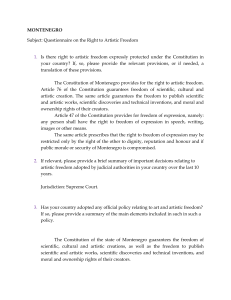
![Beyond Boundaries: the arts after the events of 2001 [Word 68.0 KB]](http://s3.studylib.net/store/data/007799267_2-16d145ad3de1c80e45ac18a60e2da725-300x300.png)
